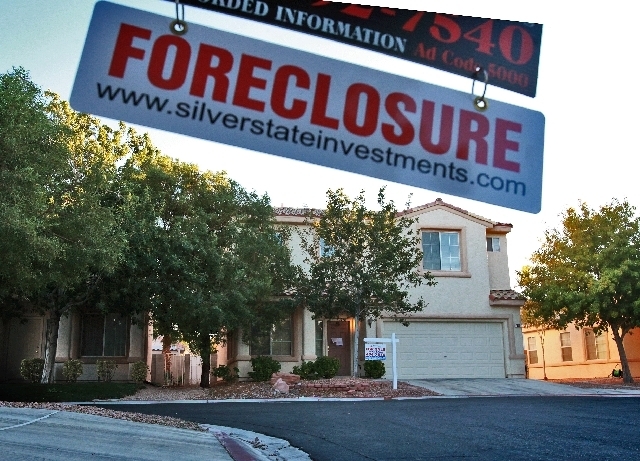Divided Supreme Court sides with bankers in deficiency claim ruling
A divided Nevada Supreme Court sided with bankers on Wednesday when deciding how much borrowers could owe if they lose their houses or commercial developments through foreclosure.
In doing so, the court attempted to clear up some of the legal turmoil that has followed the 2011 passage of Assembly Bill 273, which sought to protect homeowners from big deficiency claims — the gap between what is owed on a mortgage and the property’s value at foreclosure — pursued by lenders that buy distressed loans at deep discounts. The five-justice majority acknowledged the “considerable confusion” the bill has caused, with trial judges going in different directions.
Assemblyman Marcus Conklin, D-Las Vegas, authored AB 273 against a growing tide of complaints about so-called vulture investors buying defaulted loans for pennies on the dollar and then trying to collect deficiencies for the face amount. For example, buying a $200,000 loan for $30,000 would entitle the note owner to collect the full $200,000, even in the severely depressed real estate market that followed the 2008 crash.
Any trustee’s sale or foreclosure that took place prior to June 10, 2011, when the law went into effect, would not be saddled with a deficiency limit of what the lender paid for the loan. A bank that originated the loan and held on to it is not affected.
By contrast, attorneys for small-scale commercial developer Stacy Yahraus-Lewis, who faces a $3 million claim on a commercial loan she guaranteed, argued unsuccessfully that the law covered any deficiency verdicts starting on June 10. This analysis, backed by an opinion by the Legislative Counsel Bureau, would have extended the law’s protection to a larger pool of borrowers than the court’s ruling.
It is unclear, however, how many people are affected. Frank Flansberg III, Yahraus-Lewis’ attorney, said more of the cases than not he sees are covered by deficiency cap.
“But there are certainly a fair amount” where the foreclosure took place before the law’s starting date, potentially exposing them to more financial liability.
William Uffelman, CEO of the Nevada Bankers Association, said the law mainly affects commercial developments. This has been the most active market for selling loans in default, he said.
Nevertheless, Justice Michael Cherry wrote in his dissent, “In essence, the majority’s decision serves to produce a windfall for collection agencies and other third-party purchasers of distressed loans ... .” Yahraus-Lewis was just one of “innumerable similarly situated borrowers and guarantors” who would lose out even though AB 273 was supposed to protect them, he wrote.
The dissent also was signed by Justice Ron Parraguirre.
The majority placed a priority on not approving an interpretation that would allow retroactive changes to the rules governing deficiencies and potentially devaluing a loan after the fact. In doing so, the court upheld the ruling by Clark County District Judge Elizabeth Gonzalez two years ago.
Branch Banking &Trust Co. said in court papers that it held more than $300 million in Nevada mortgages that could be affected by a ruling against lenders. Another entity, RADC/CADC Venture 2010-2 LLC, a joint venture of private investors and the Federal Deposit Insurance Corp., said it had $1.1 billion in mortgages at stake.
Yahraus-Lewis fell into a different category. She almost had finished building the 48-unit Sandpointe apartments near Boulder Station when the bank that had given her a $5.1 million loan failed. Her efforts to find alternate financing to finish the project did not bear fruit.
Her loan was part of a $2.3 billion portfolio that was sold to a joint venture between the FDIC and Rialto Capital Advisors, owned by giant homebuilder Lennar. Flansberg calculates that Rialto paid 39 cents on the dollar for its stake.
The Lennar-related entity then finished the project and filed a deficiency claim against Yahraus-Lewis.
Contact reporter Tim O’Reiley at toreiley@reviewjournal.com or at 702-387-5290.




























